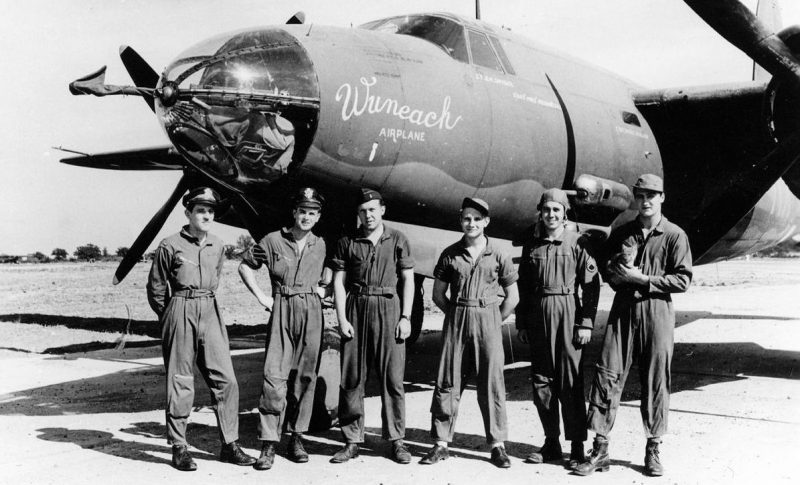As he took refuge in a foxhole at an English air base to shield himself from German rockets droning above him, George Brienza questioned if he would get to see his two daughters and wife and in Colorado ever again.
On Saturday, Brienza celebrated his 100th birthday in the Arvada, Colorado home of his niece, flanked by families that had traveled from all over the country to celebrate the occasion.
He was always scared. They bombed us every hour of the day, Brienza recalled. War is nothing but destruction and death.
But surviving it also taught him to live life more fully.
What are his rules for living to be 100-years-old? Don’t run around, don’t drink, don’t smoke, love people and keep family close to you.
World War II veterans are rapidly leaving us and with them go stories and memories. In 2005, 39,400 World War II veterans lived in Colorado, according to the U.S. Census Bureau figures. Last year, there were less than 13,400.
Brienza was raised in a small dwelling in North Denver, opposite the shuttered Patsy’s Inn, close to Mount Carmel Church. He was the second oldest of six offspring born to Italian immigrants, who earned a living breeding and raising goats they shepherded from Navajo Street to a farm in the area of Westminster.
A welder and machinist, he had skills of particular value to the military during World War II labouring on B-26 bombers of the Eighth Air Force’s 387th Bombardment Group.
Brienza, as the crew chief, was responsible for ensuring one aircraft, in particular, the Ollie-L, remained operational. He stayed with the Ollie-L as pilots came and went.
They completed 153 missions with no one killed or injured, he said.
The B-26, the “Marauder” as it was known, had a shorter range and was smaller than the B-17 bombers that captured public interest. They played a crucial role in destroying German defences. They helped prepare for the D-Day invasion at Normandy, took pressure off the encircled 101st Airborne during the Battle of the Bulge at Bastogne and destroyed the fearful V-weapon sites that tormented the British people.
Brienza recalls the first time he saw a V1-rocket, nicknamed the buzz bomb, essentially a 500-pound air weapon with a flame trailing aft. At first, he thought it was the burning engine of a plane that had exploded, not realizing he was witness to a weapon that would change the modern war.
Each time the Ollie-L and its crew left to cross the English Channel, Brienza said he sent up a prayer to accompany it. It always returned. He said he realized the Ollie-L was unique when he took a piece of German anti-aircraft shrapnel from the roof over the cockpit. Marked on it was 717 the plane’s call number – 717.
To his disappoint, an inexperienced pilot on a training flight landed short of the runway and destroyed the plane, something that the Germans hadn’t accomplished.
That was one of the worst emotions, he said.
After the war, Brienza found work with the U.S. Postal Service and was employed there for 30 years there and raising children. Following the death of his wife in 1988, he married Jean, a woman 27 years younger than him, which brought a second family into his circle of relatives, The Denver Post reported.
Brienza’s hearing suffered from working on aircraft. And his eyesight is disappearing. However, his mind is still sharp. He was disappointed his phone didn’t ring on the morning of his centenary, not aware of the bigger astonishment that awaited him later in the day.
